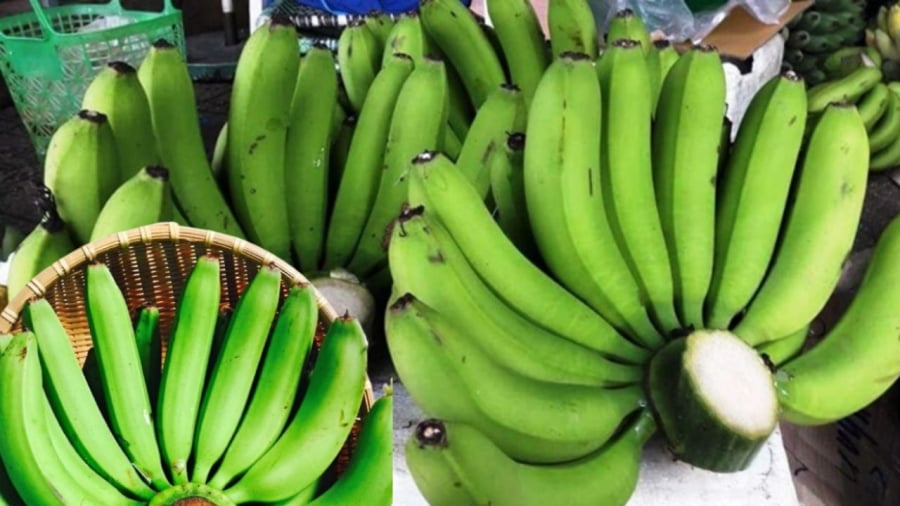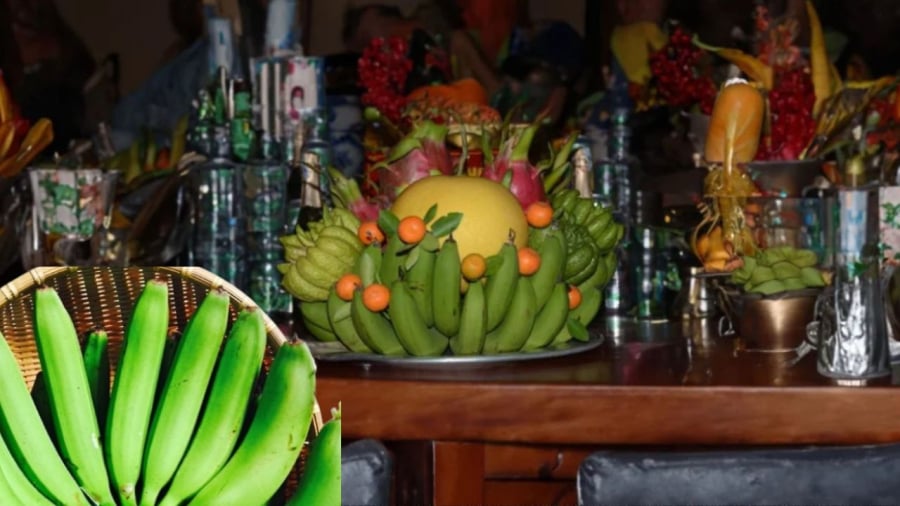Note on Superstitions
Burning incense with bananas is a familiar custom. Bananas are often found in the center of the five-fruit tray of many Northern families. For many families, important holidays such as Tet and the 15th of August are incomplete without bananas…
Bananas are a common fruit in Vietnamese cuisine. Banana trees are familiar in every village. Bananas are also inexpensive and easily purchased.
Offering bananas as incense is not just about offering a fruit or a product, but about expressing a wish for protection and support. For Northern people, bananas are the most popular fruit in the five-fruit tray.
However, when burning incense with bananas, note the following:

Choosing a beautiful, green banana is important
– There are many varieties of bananas, such as banana peppers, banana seeds, banana leaves, banana kings, and Western bananas. Northern people often choose long, curved banana peppers, while Central people abstain from banana peppers and choose banana kings, the king’s banana. Therefore, when choosing a banana to burn incense, pay attention to regional culture for appropriate behavior.
– Bananas are attractive and are usually used at home and not at the cemetery: In the past, when burning incense, people often did not take bananas to the cemetery. Bananas are mainly placed on the ancestral altar at home. Bananas are also not taken to worship the hungry ghosts. Folklore holds that bananas attract souls, so burning incense at a cemetery with bananas may bring ghosts home. As a result, the ancients told their descendants not to burn bananas at the cemetery.
– Choose to burn incense with a whole bunch of bananas: When placing bananas for incense, place a whole bunch without separating the fruits, as separating them is a sign of incompleteness, separation, and division. Bunches of bananas that are missing fruits or have bruised fruits should not be used for incense.
– Do not assemble or stack multiple bunches of bananas when burning incense, as this may cause them to fall and bring bad luck.
How to Choose a Beautiful and Lucky Banana for Incense
Bananas for incense should be chosen when they are ripe, green, and plump, but not yet ripe. Never burn incense with ripe bananas as they can fall off easily and attract small insects, affecting the peace and cleanliness of the worship space.
Green bananas are sturdy and can support other fruits. Moreover, green bananas are not worshiped because they are ugly, flat, aesthetically unpleasing, and bad for feng shui.

Do not burn incense with ripe bananas, choose green bananas instead
Bananas with whiskers at the top are considered lucky and aesthetically pleasing. Be careful not to rinse the bananas too vigorously, as this may cause the whiskers to fall off.
Choose a bunch of bananas with an odd number of fruits, as odd numbers represent the positive, indicating growth, luck, and increased wealth. Even numbers, on the other hand, represent the negative and indicate a lack of development.
Avoid bananas with curved, crooked, or twin fruits for incense.
When offering bananas as incense, be mindful of the timing. Bananas, when ripe, can emit an unpleasant odor and cause the top of the bunch to turn dark and rot, dripping liquid onto the altar and affecting the purity of the worship space.
When preparing bananas for incense, avoid placing them on the ground. When rinsing the bananas, be sure to clean the dirt from between the fruits without getting them too wet before placing them on the worship plate.
Reference information for divination





































